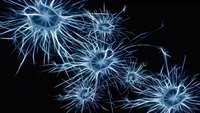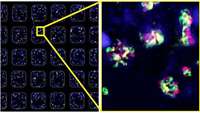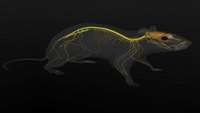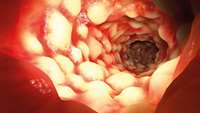Novartis signs Chinese manufacturing deal with Cellular Biomedicines for Kymriah
Swiss pharmaceutical company Novartis has signed an exclusive marketing agreement with Cellular Biomedicines to manufacture its CAR-T therapy Kymriah in China.
Autism linked to egg cells difficulty creating large proteins
New work from Carnegies Ethan Greenblatt and Allan Spradling reveals that the genetic factors underlying fragile X syndrome, and potentially other autism-related disorders, stem from defects in the cells ability to create unusually large protein structures. Their findings are published in Science.
Researchers transform human blood cells into functional neurons
Human immune cells in blood can be converted directly into functional neurons in the laboratory in about three weeks with the addition of just four proteins, researchers at the Stanford University School of Medicine have found.
Robots grow mini-organs from human stem cells
An automated system that uses robots has been designed to rapidly produce human mini-organs derived from stem cells. Researchers at the University of Washington School of Medicine in Seattle developed the new system.
UK panel rejects Kymriah for adults with lymphoma due to cost
An independent body that offers guidance to improve health and social care in England recommended against the use of tisagenlecleucel, a chimeric antigen receptor T-cell therapy, in adults with relapsed or refractory large B-cell lymphoma.
Blood transfusions with iPS cells OK’d by Japanese health ministry
The government has given the green light to using blood transfusions including platelets created from artificially derived stem cells to treat patients with intractable diseases.
Detailed atlas of the nervous system
Researchers at Karolinska Institutet have created a systematic and detailed map of the cell types of the mouse nervous system. The map, which can provide new clues about the origin of neurological diseases, is presented in the journal Cell.
Gene therapy: Better adenine base editing system
The human gene is composed of the bases Adenine (A), Thymine (T), Cytosine (C) and Guanine (G), which are arranged in a particular order to encode genetic information.
Stem cell transplants to be used in treating Crohns disease
A clinical trial has begun which will use stem cell transplants to grow a new immune system for people with untreatable Crohns disease—a painful and chronic intestinal disease which affects at least 115,000 people in the UK.
Amicus Therapeutics Acquires Gene Therapy Portfolio of Ten Clinical and Pre-Clinical Stage AAV Programs in Neurologic Lysosomal Storage Disorders
Amicus Therapeutics (Nasdaq: FOLD) today announced the signing of a definitive agreement in which Amicus Therapeutics will receive worldwide development and commercial rights for ten gene therapy programs developed at The Center for Gene Therapy at The Research Institute at Nationwide Children’s Hospital and The Ohio State University.












